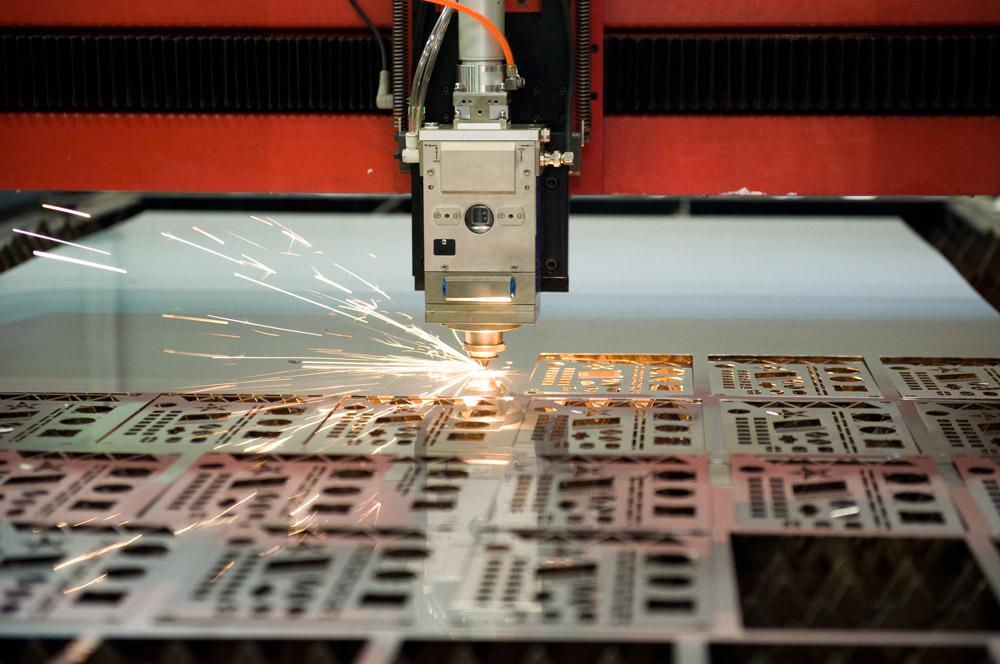Cutting galvanized metal is a task that demands precision and understanding of both technique and tools. For both **industrial manufacturers** and DIY enthusiasts, mastering the art of cutting this type of metal can be incredibly beneficial, facilitating projects that range from robust metalwork to detailed architectural designs.
Galvanized metal, known for its corrosion resistance, is widely used in various industries, which makes the need for proper cutting techniques vital. Whether you’re looking to **minimize burrs** or handle **perforated metal** projects, gaining insights into the methods used in cutting galvanized metal ensures smooth and efficient operations.

Understanding Galvanized Metal
Composition and Characteristics
Galvanized metal is steel coated with a protective layer of zinc to prevent rusting. The zinc coating acts as a barrier against corrosion, making it an ideal choice for outdoor and moisture-exposed environments.
Applications and Uses
The use of galvanized metal spans multiple sectors, from construction to automotive and even decorative applications. It is valued for its durability and low maintenance, which justifies the emphasis on understanding cutting techniques.
Essential Tools for Cutting
Manual Tools
For tasks that require precision, manual tools such as tin snips and hack saws are often preferred. They offer control, making them suitable for delicate tasks.
Power Tools
When dealing with thicker panels, power tools like angle grinders and jigsaws come into play. Their power and speed make them efficient for larger projects, but they require skill to control and achieve precision.
Techniques for Effective Cutting
Preparation Steps
Before cutting galvanized metal, ensure that you have a clean and well-organized work area. Proper measurements and marks are crucial to achieving accurate cuts.
Cutting Methods
Several methods can be employed, including shearing, sawing, and torch cutting. The choice depends on the thickness and the level of precision required for the task at hand.
Safety Guidelines
Personal Protective Equipment (PPE)
Always employ protective gear such as gloves, goggles, and masks to protect against metal shards and zinc fumes.
Ventilation and Workspace Safety
Ensure that the workspace is well-ventilated, as cutting can release hazardous fumes. Adequate ventilation minimizes health risks associated with inhaling zinc oxide.
Common Challenges and Solutions
Avoiding Burrs
Burrs can mar the aesthetics and functionality of metal pieces. Strategies to minimize burrs include using sharp tools and appropriate cutting techniques.
Maintaining Zinc Coating
While cutting galvanized metal, it’s important to preserve the zinc coating as much as possible. Techniques such as slow cutting speeds can help maintain the integrity of the coating.
Innovations in Metal Cutting
Advancements in Equipment
New technologies have introduced advanced cutting machines that offer precision and efficiency, reshaping how industries approach metal fabrication.
Future Trends
As the demand for galvanized metal continues to rise, development in cutting technologies keeps pace, with a focus on precision and efficiency.
Additional Resources
For more insights into metal fabrication, check this guide on effective methods for metal cutting. If you’re interested in precision cutting, the [precision sheet metal fabrication](https://beamcut.com/what-is-precision-sheet-metal-fabrication/) guide is a valuable resource.

FAQs
What is the best tool for cutting galvanized metal?
It depends on the thickness of the metal. For thin sheets, tin snips are adequate, while thicker metals may require an angle grinder or a saw.
Can I cut galvanized metal indoors?
Yes, but ensure proper ventilation to avoid inhalation of fumes. Wearing PPE is crucial.
Do I need specialized training to cut galvanized metal?
While basic cutting doesn’t require specialized training, understanding safe practices and techniques is beneficial.
This article contains affiliate links. We may earn a commission at no extra cost to you.

